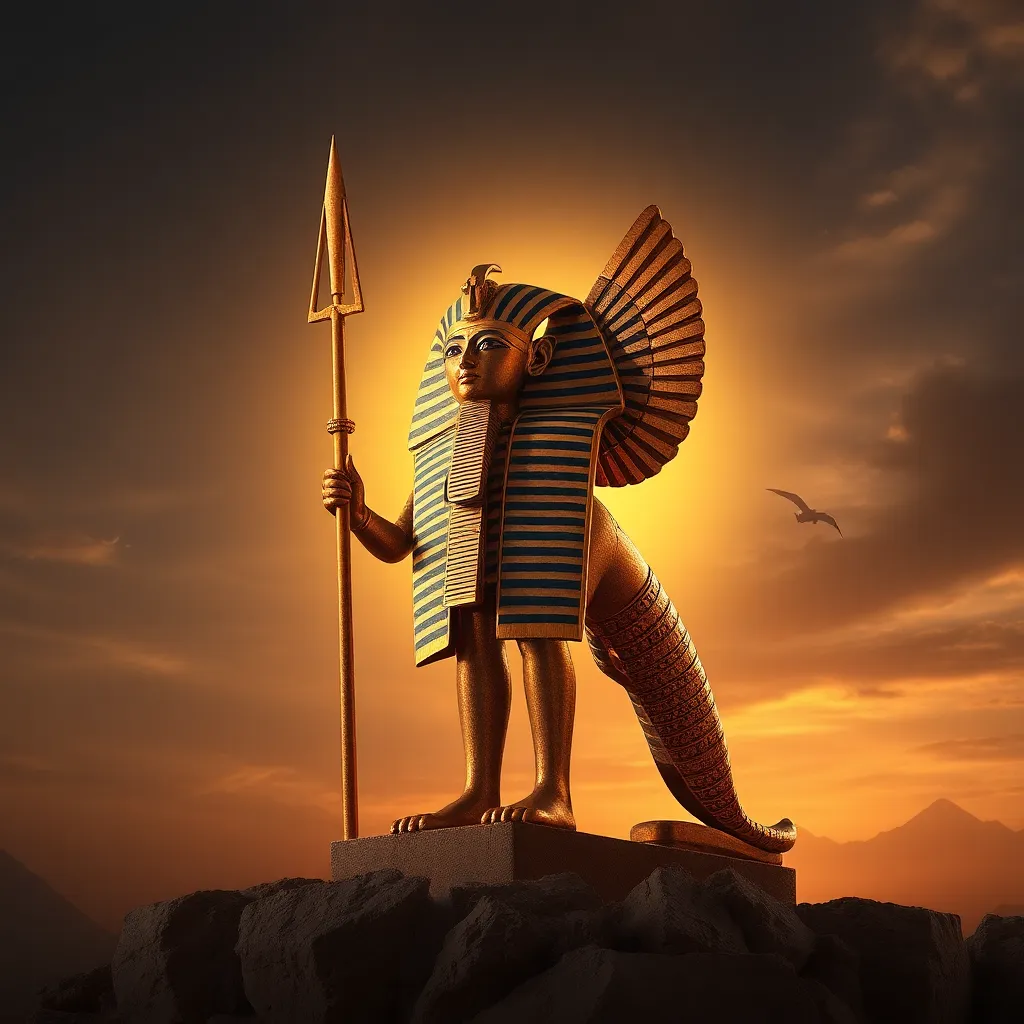The Gods of Egypt: Their Influence on Pop Culture and Modern Mythology
I. Introduction
Ancient Egyptian mythology is a rich tapestry of beliefs and stories that encompass a wide array of deities, each representing different aspects of life, nature, and the cosmos. The gods of Egypt have played a significant role in shaping the spiritual and cultural identity of one of the world’s oldest civilizations.
In historical context, these deities were not just figures of worship; they were integral to the understanding of the world around the ancient Egyptians. Each god held unique attributes and powers that influenced daily life, governance, and the afterlife beliefs.
The purpose of this article is to explore the enduring influence of Egyptian gods on modern culture and mythology, examining their representations in literature, film, video games, art, fashion, and music.
II. Key Deities of Egyptian Mythology
Several major gods stand out in Egyptian mythology, each with their own symbolism and stories:
- Ra: The sun god and one of the most important deities, Ra symbolizes creation and life. His daily journey across the sky represents the cycle of life and death.
- Osiris: God of the afterlife and resurrection, Osiris is often depicted as a mummified king. His story involves themes of death, rebirth, and the eternal nature of the soul.
- Isis: The goddess of magic and motherhood, Isis is revered for her wisdom and protective qualities. She plays a crucial role in the resurrection of Osiris.
- Anubis: The god of mummification and the afterlife, Anubis is depicted as a jackal or a man with a jackal’s head. He oversees the weighing of the heart, determining the fate of souls.
- Horus: The sky god, often represented as a falcon, Horus embodies kingship and protection. His rivalry with Set symbolizes the struggle between order and chaos.
These gods were central to religious practices and rituals, influencing everything from governance to daily activities in ancient Egyptian society.
III. Egyptian Mythology in Literature
Egyptian mythology has left an indelible mark on literature throughout history:
- Classic Literature: Ancient texts such as “The Epic of Gilgamesh” showcase the influence of Egyptian beliefs on other cultures’ mythologies.
- Modern Adaptations: Contemporary novels and poetry often draw inspiration from Egyptian themes, weaving their stories around the gods and myths of ancient Egypt.
Case studies of notable works inspired by Egyptian mythology include:
- The Egyptian by Mika Waltari: A historical novel that immerses readers in the life of ancient Egypt through its gods and culture.
- The Kane Chronicles by Rick Riordan: A series that introduces modern readers to the gods of Egypt through the adventures of two siblings.
IV. Egyptian Gods in Film and Television
The portrayal of Egyptian gods in film and television has brought these ancient figures to new audiences:
- Films: Movies such as “The Mummy” and “Gods of Egypt” feature Egyptian deities prominently, albeit with varying degrees of historical accuracy.
- Television Shows: Series like “American Gods” and “The Magicians” explore Egyptian mythology alongside other pantheons, blending ancient themes with modern storytelling.
While these adaptations are entertaining, they often take creative liberties, leading to a mix of accurate representations and fictional storytelling.
V. Influence on Video Games
Video games have also embraced Egyptian mythology, incorporating its themes and deities into gameplay:
- Popular Games: Titles like “Assassin’s Creed: Origins” and “Smite” feature gods and mythological elements, allowing players to engage with ancient narratives.
- Gameplay Mechanics: Many games involve quests centered around Egyptian gods, utilizing their powers in gameplay, and creating immersive experiences.
The cultural impact of these games fosters a deeper engagement with ancient mythology, captivating players and sparking interest in Egyptian history.
VI. Egyptian Mythology in Art and Fashion
Art and fashion have been significantly influenced by Egyptian gods and motifs:
- Artistic Representations: Contemporary artists often depict Egyptian deities in their work, exploring themes of divinity and power.
- Fashion Trends: Egyptian motifs have inspired jewelry and clothing designs, with symbols such as the ankh and scarab becoming popular.
Additionally, Egyptian themes are prevalent in advertising and branding, tapping into the allure of ancient culture.
VII. Egyptian Themes in Music and Popular Culture
The influence of Egyptian mythology extends into music, where themes and deities are often explored:
- Music Influences: Various genres of music incorporate Egyptian themes, from hip-hop to rock, reflecting the richness of the mythology.
- Case Studies: Artists such as Beyoncé in her visual album “Lemonade” and the band Nile have drawn upon Egyptian imagery and themes.
Moreover, Egyptian motifs in visual arts related to music enhance the overall storytelling experience.
VIII. Conclusion
The legacy of Egyptian gods continues to resonate in modern culture, inspiring countless forms of artistic expression and storytelling. Their influence can be seen in literature, film, video games, art, fashion, and music, reflecting the timeless nature of these ancient myths.
As we navigate contemporary storytelling, the importance of mythology remains apparent, offering insights into the human experience that transcend time and culture. The future holds great potential for the continued exploration and reinterpretation of Egyptian mythology in popular culture, ensuring that these ancient deities will remain relevant for generations to come.




